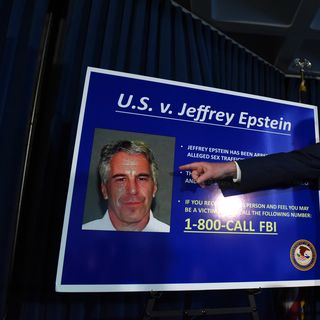I moved from Atlanta to Panama after retiring with my 97-year-old mother with dementia. Prices aren't too much cheaper, but we love the culture and calm.
Debbie Boyd
- Debbie Boyd moved to Panama with her 97-year-old mother for lower costs and healthcare options.
- Boyd, a retired real estate broker, sought a more affordable lifestyle with different politics.
- Boyd said Panama has offered a vibrant culture and supportive community for her and her mother.
This as-told-to interview is with Debbie Boyd, 71, who moved to Panama from Atlanta with her 97-year-old mother, Doris Britto, who has dementia. Boyd and Britto moved in early 2025 and have enjoyed their time so far. Boyd has particularly appreciated the medical resources and lower cost of living abroad. This interview has been edited for length and clarity.
I moved to Panama in March this year, and my mother followed a few weeks later. I had always considered the possibility of relocating outside the US and had looked into moving for a couple of years before I retired. I read about the lower cost of living being less, but I think what spurred my action was the political climate.
My first impression is that I love it here. The people in Panama are very friendly and caring. Our goal now is to get more entrenched in this new life.
I've had a number of different careers
My mom and I are both native New Yorkers. She was a long-distance operator for the New York Telephone Company for over 40 years. I relocated to Atlanta in 1983, and my mom followed me there in 1986, when she retired. We were in the Atlanta area up until this year.
She traveled with her friends and helped me raise my son. She became active in some senior citizen groups in the area.
I had a couple of careers. I've been a real estate broker with my own residential real estate firm, worked as an administrative assistant, and taught classes in criminal justice for online universities as an adjunct professor. I retired in 2016.
I found that I was becoming bored and wanted to make better use of my time. After retiring, I took swim classes, got together with friends for lunch, and traveled.
After I initially retired, I took about one year to decompress and give some thought as to what I wanted for the next phase of my life. I spent mornings reflecting over a healthy breakfast and good coffee. I enrolled in Water Zumba classes and started a walking regime. I also used this time to reconnect with friends and making quite a bit of lunch dates with my former tennis team members.
I went back to work after a couple of years in a work-from-home position.
In 2018, I got a bladder cancer diagnosis, and it involved a serious surgery. I wasn't well enough to take care of my mother, though she and I lived together. She moved into a nursing home and lived there for seven years.
Once I determined earlier this year that I was going to move to Panama, I asked my mom if she wanted to come. She said she did.
I decided that it was probably best for both of us. Otherwise, she would be in Atlanta, and I would be abroad. My son and grandchildren are grown up and have very active lives, so I knew she would be pretty much alone in the nursing home, which I didn't want for her. Panama checked a lot of the boxes. Healthcare seemed excellent, and I had a friend who retired there who answered my questions.
At the time, we were doing fine financially. We're not wealthy people, but we've worked our whole careers, paid bills on time, handled finances responsibly, and have good credit. But things have gotten so tight in the US; it's really hard to make ends meet as a retiree living off of Social Security and a small pension.
As an African American, I feel we are being targeted and knowledge of our proud heritage is constantly under assault.
The first few weeks abroad involved managing many logistics
I did three scouting trips. I wanted to come first to find a place that was suitable for us logistically. My mother's in a wheelchair, so I looked for a place that was more level. We got as much paperwork done as we could ahead of time so she could leave her facility.
My son made time to help me out by bringing my mother a few weeks later. I set up an appointment with a doctor, and he was able to see her within a week of her getting here, making sure we could transfer her medications and prescriptions.
My mom told me that since I'm here and I've handled everything, she's happy and has enjoyed it so far. She came down with a cold a few weeks ago and lost her appetite, but she started eating again and felt better. She's happier to not be in a nursing home environment. We're now looking to find more activities we can participate in together.
My friend who retired here introduced me to another person who had a sister with MS and who connected me with a home care agency. A young lady comes in six days a week to tend to my mom; she helps bathe her, prepare her meals, change her sheets, and do her laundry.
I get much more home for the same price here
Rental prices are a little higher than what I expected they'd be, but there's a gamut of price ranges. I've seen everything from $500 a month up to beyond $3,000 where I'm located. I have a four-bedroom house, an in-ground pool in the backyard, a very large living room, dining room, and kitchen.
The rent is $1,500 a month, a bit more than what I was paying for my mortgage on my house in the States, the mortgage on which is $777 a month. I still own my home. However, there have been recent property tax and home owner insurance increases and I estimate my mortgage will be approximately $250 more in 2026. I get so much more for the same amount of money.
The utilities aren't too bad. One month, I had a $70 bill, but the next month was $300. Each bedroom has its own individual air conditioning unit, so we're trying to figure out when to run it and for how long.
I'm still doing some paperwork and making phone calls to get things settled. A couple of friends have come to visit, and my son has come three times. I have a lot more company coming over the next two months.
I handle my business here like I would at home; I go to the grocery store, the bank, and the pharmacy. I take Ubers because I don't want to drive here; they drive really fast. An Uber one-way is about $2.20.
I'm still getting acclimated
I've discovered, though, that Panamanians love to party and love music. There are also always dogs barking early in the morning and late at night, so I'm trying to get used to the noise.
We don't live in an expat neighborhood. I wanted to be immersed in Panamanian culture. It's been about two months since we've been here, but I haven't had much of a chance to meet our neighbors yet. All of the houses are gated individually, so it's not like you can just walk up to your neighbor's front door.
But when I go to the mall, people talk with me. When they realize I only speak a little Spanish, everybody's helpful, pleasant, and willing to help me find things.
I haven't gotten to eat out much, but I've gotten really into going to the market and getting fresh fruit and vegetables. The hospital near me has a program where they will accept Medicare Advantage if you have an emergency situation and are hospitalized, which I'm applying for. I'm also applying to a program that's $220 a year to have any tests, blood work, or lab work done. I have Chronic Obstructive Pulmonary Disease (COPD), and I was on oxygen when I was back home. I haven't had to use it since I've been here.
My goal now is to get more involved with expat groups. I joined one recently and went to a very nice luncheon, where I met new people. I hope to continue expanding my social network. I plan to make this my new home and get more involved in volunteering.





